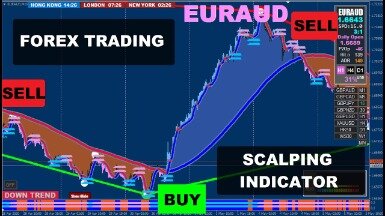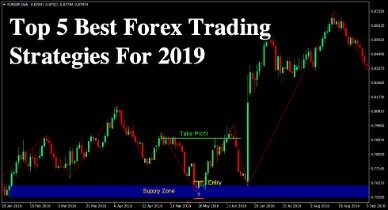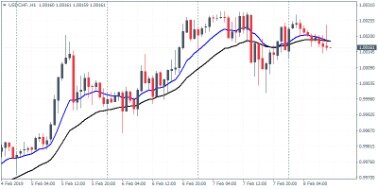Contents:


ETFs often generate fewer capital gains for investors than mutual funds. This is partly because so many of them are passively managed and don’t change their holdings that often. However, ETFs also have a structural ability, called the in-kind creation/redemption mechanism, to minimize the capital gains they distribute. Your broker will disclose the cost of commissions and the ETF provider will disclose the OER . But you also need to pay attention to implicit costs, such as a wide bid/ask spread, which refers to situations when the price to buy shares is higher than the price to sell them. The spread can be particularly large for ETFs that don’t trade very frequently.
ETFs vs Stocks: What Are the Pros and Cons? – etf.com
ETFs vs Stocks: What Are the Pros and Cons?.
Posted: Mon, 14 Nov 2022 20:03:17 GMT [source]
Once they have these shares, these participants can then head to the exchange and sell them to investors. When an ETF share is on the exchange, it can be bought and sold intraday just like any other stock. An ETF is a pooled investment product offering exposure to multiple investments at once, similar to a mutual fund. However, unlike a mutual fund, an ETF can be traded on an exchange like a stock. Here, you’ll get a full breakdown of the key differences between ETFs and mutual funds, so you can decide which type of investment is best for you. And if you’re wondering whether it’s worth getting help from a financial advisor or investment professional, here are some things to keep in mind.
A mutual fund manager must constantly re-balance the fund by selling securities to accommodate shareholder redemptions or to re-allocate assets. The sale of securities within the mutual fund portfolio creates capital gains for the shareholders, even for shareholders who may have an unrealized loss on the overall mutual fund investment. That’s why many investors choose “bundled” assets, like an exchange-traded fund or index fund. These are low-cost, low-risk investments that provide strong and reliable returns.
Index funds often require you to give notice before selling your position, so it’s difficult—if not impossible—to buy or sell quickly. Also, index funds will not process trade orders until the end of the day. ETFs and index funds hold a variety of different securities. Just a small number of ETFs or index funds can provide you with a highly diverse portfolio.
Index Funds vs. Mutual Funds: What’s the Difference?
However, ETFs can be traded throughout the day on the stock market like any other stock. Tax efficiency is a factor on which Exchange Traded Funds and index mutual funds function equally well. Regarding price fluctuations, index ETF prices vary throughout the trading day. While joint index funds and ETFs share similarities, the differences are many.
IShares unlocks opportunity across markets to meet the evolving needs of investors. With more than twenty years of experience and a global line-up of 1,250+ ETFs, iShares continues to drive progress for the financial industry. IShares funds are powered by the expert portfolio and risk management of BlackRock.
TRADING
“Other important differences include investment minimums,” says Rodney Comegys, the global head of the Equity Index Group at Vanguard. Depending on the provider of the index fund, there may be a minimum investment required, which could range between $1,000 to $3,000. This information is not intended to be a substitute for specific individualized tax, legal, or investment planning advice.

In more efficient markets, businesses or markets are so popular and information is so quickly and widely distributed that there isn’t much opportunity for active managers to add value. This is a one-time commission some fund companies charge whenever you buy or sell shares to compensate the broker. Support your strategy and portfolio by knowing when to invest in exchange-traded funds , index funds, and actively managed mutual funds. ETFs (exchange-traded funds) and mutual funds both offer exposure to a wide variety of asset classes and niche markets. They generally provide more diversification than a single stock or bond, and they can be used to create a diversified portfolio when funds from multiple asset classes are combined. Determining whether an index fund or ETF is better is difficult because the answer depends on the specific funds being discussed and your goals as an investor.
You’re tax sensitive
Risk AppetiteRisk appetite refers to the amount, rate, or percentage of risk that an individual or organization is willing to accept in exchange for its plan, objectives, and innovation. They have a Net Asset Value determined as Total Value of the Underlying assets minus Fees / Total Number of Shares. Funds are managed professionally and aim to reduce risks through diversification. And with equal-weighted index funds, every asset receives equal weight.
Mutual funds have active management, meaning they have a team of financial experts looking for the right stocks to include in their fund. The price war has escalated between ETF providers while peace prevails among index fund providers. Due to fairly bad expense ratios, buying an ETF is less expensive. Dividend policy is the only cost factor where index funds prevail over Exchange Traded Funds Index funds will invest dividends at once.
The question is weighty, but the burden of its implications makes it important. Choosing the right Etf versus index fund strategy involves being proactive. After all, as Warren Buffet remarked, you don’t test the depth of the river with both feet! Financial markets are as unpredictable as possible, even if you are following stock market indices.
How are ETFs and mutual funds taxed?
Using an updated version will help protect your accounts and provide a better experience. Looking to add a source of income or create diversification for your portfolio? This type of exchange-traded ETF is built differently from a traditional ETF.
- They also tend to have lower fees and are more tax-efficient, on average.
- ETFs are a popular way to invest money, but what makes them so special?
- This is a one-time commission some fund companies charge whenever you buy or sell shares to compensate the broker.
- The dollar amount of funds or percentage of a portfolio invested in a type of security, market sector or industry.
There is frequent discussion in the Bogleheads forum on the comparative merits of each. Below is a comparison ordered by the various factors, in the rough order of importance. The data and analysis contained herein are provided “as is” and without warranty of any kind, either expressed or implied.
When bought at a different brokerage, fees can be much higher, for example $50 / transaction; however, zero fee arrangements are even more widespread than with ETFs. It’s very important to select either the account location or the fund so as to avoid the large transaction fees. For the most part, ETF managers are able to manage the secondary market transactions in a manner that minimizes the chances of an in-fund capital gains event. It’s rare for an index-based ETF to pay out a capital gain; when it does occur it’s usually due to some special unforeseen circumstance.
Be mindful of it when https://forex-world.net/ shopping around for an ETF and always look for the lowest possible bid-ask spread. Index funds usually have investment minimums that are much higher than a single share price. Index funds, on the other hand, are only bought and sold at the very end of the trading day after the markets have closed. When you hold a diverse array of assets, you’re better protected if one of your investments fails. For instance, if one of the companies you’ve invested in files for bankruptcy, you’ll still have other assets generating money for you. Diversification is also a good way to earn multiple streams of revenue.

Additionally, mutual funds typically offer a higher level of diversification than ETFs. By investing in various asset classes, mutual funds can help reduce risk and improve returns over time. And mutual funds typically have lower fees than ETFs, which can lead to better returns.
His work has been cited by CNBC, the Washington Post, The New York Times and more. The offers that appear on this site are from companies that compensate us. But this compensation does not influence the information we publish, or the reviews that you see on this site.
Odds are, you’re better off buying an index fund. Here’s why – CNBC
Odds are, you’re better off buying an index fund. Here’s why.
Posted: Mon, 21 Mar 2022 07:00:00 GMT [source]
Management fees are lower for ETFs as this fund does not engage in accounting- this is not so for index funds. Shareholder transaction costs are zero for index funds, on the other hand, unlike ETFs. Taxation of investment vehicles, Exchange Traded Funds, and index funds favor the former over the latter.
ETFs are very seldom available as investment options in defined contribution plans, like 401s. Generally, index funds and actively managed mutual funds are your only choice. When index fund and mutual fund shares are purchased in a retirement plan, there generally aren’t minimum minimum purchase requirements. The goal is to put together a collection of stocks that outperform the average stock market index.
How to Pick the Best S&P 500 Index Fund – The Motley Fool
How to Pick the Best S&P 500 Index Fund.
Posted: Wed, 16 Nov 2022 08:00:00 GMT [source]
And if you have both tax-deferred, after-tax, and taxable accounts, you may have options for managing the tax liability of multiple types of funds. Investors should remember that an ETF’s total cost of ownership is a combination of its operating expenses and costs of trading. Your investing strategy as well as the specific ETFs that you select for your portfolio can make a big difference in the total cost. Generally less efficient due to higher turnover – greater potential for capital gains due to a larger number of purchases and sells by active managers.
ETFs can trade intraday, meaning investors can move in and out of these funds like a stock. Conversely, index funds are priced only at the end of the day, making them less attractive for those looking to make short-term trades. Another disadvantage is the way capital gains are treated with index funds. There are two ways an investor could be taxed on capital gains. The first is when you sell your portion of the fund for a price higher than you paid, which is a move that you can control.
